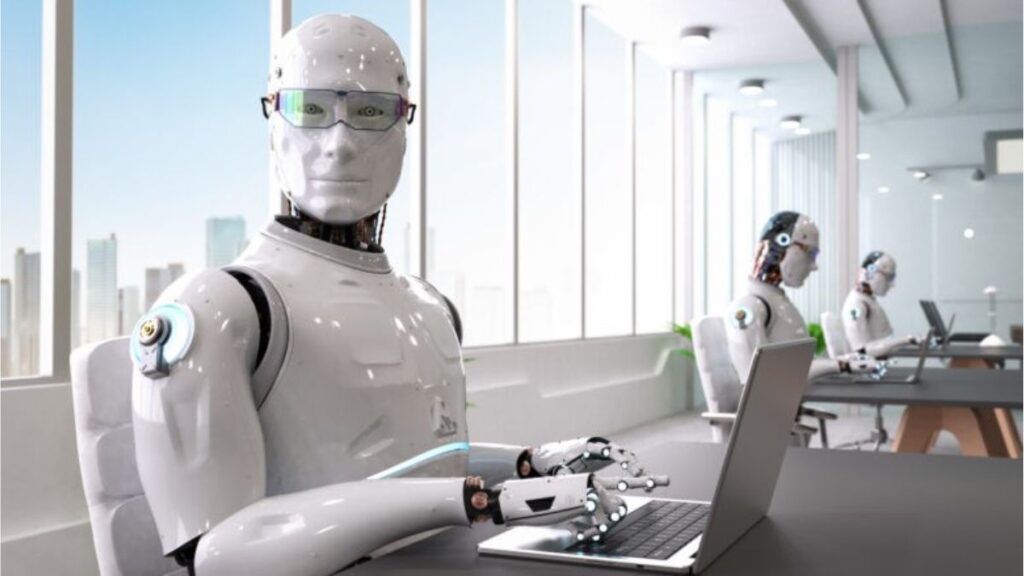Artificial Intelligence (AI) has rapidly transformed various sectors, shaping how we live, work, and interact. As we approach 2025, the landscape of AI continues to evolve, presenting exciting trends that will likely redefine its capabilities and applications. This article explores the future of artificial intelligence, highlighting key trends to watch as we head into this pivotal year.
Advancements in Machine Learning
Machine learning (ML) is a subset of AI that has witnessed exponential growth over the past few years. As we move into 2025, we can expect further advancements in ML algorithms, particularly in deep learning and reinforcement learning. These improvements will enable machines to learn from vast datasets more efficiently, leading to enhanced accuracy in predictive analytics.
In 2025, businesses will leverage these advancements to optimize operations and make data-driven decisions. For instance, retail companies will employ sophisticated ML algorithms to analyze consumer behavior, predicting trends and personalizing marketing strategies accordingly. Similarly, healthcare providers will harness machine learning to improve diagnostic accuracy, enabling early detection of diseases and more effective treatment plans. The potential for ML to revolutionize industries is vast, making it a critical trend to monitor as we approach 2025.
Natural Language Processing and Conversational AI
Natural Language Processing (NLP) is another area of AI that is poised for significant growth by 2025. As advancements in NLP continue, the ability of machines to understand and generate human language will improve dramatically. This evolution will enhance customer service interactions, allowing for more seamless communication between humans and AI systems.
Conversational AI, powered by sophisticated NLP techniques, will enable businesses to deploy chatbots and virtual assistants capable of engaging customers in meaningful conversations. By 2025, we will see these AI systems not only answering basic queries but also providing personalized recommendations based on user preferences and history. The result will be an improved customer experience and increased efficiency for companies, as AI handles routine inquiries, allowing human agents to focus on more complex issues.
AI in Automation and Robotics
The integration of AI into automation and robotics will redefine industries by 2025. As robots become smarter and more capable of performing complex tasks, businesses will increasingly adopt these technologies to enhance productivity and reduce costs. In manufacturing, for example, AI-driven robots will be able to carry out intricate assembly tasks with precision and efficiency, minimizing human error and maximizing output.
Moreover, the rise of collaborative robots, or cobots, will enable humans and machines to work side by side in various environments, from factories to warehouses. This trend will be particularly important in sectors facing labor shortages, where AI and robotics can help fill the gap. By 2025, expect to see widespread adoption of AI-powered automation solutions across various industries, leading to more efficient operations and innovative business models.
Ethical AI and Responsible Practices
As AI technologies advance, the need for ethical considerations and responsible AI practices becomes paramount. By 2025, there will be increased focus on developing ethical frameworks to guide the use of AI, ensuring that these systems are transparent, fair, and accountable. This trend will be driven by public demand for responsible AI, as consumers become more aware of the potential biases and ethical dilemmas associated with AI applications.
Organizations will be compelled to adopt ethical guidelines and practices to mitigate risks associated with AI deployment. This may involve conducting regular audits of AI algorithms to identify and address biases, ensuring that AI systems are developed and used responsibly. By prioritizing ethical AI, businesses can build trust with consumers and stakeholders, fostering a more sustainable and socially responsible approach to AI development by 2025.
AI in Cybersecurity
As cyber threats become increasingly sophisticated, the role of AI in cybersecurity will be more critical than ever by 2025. AI technologies will enhance the ability to detect, prevent, and respond to cyberattacks in real-time. Machine learning algorithms will analyze patterns and anomalies in network traffic, enabling organizations to identify potential threats before they escalate into significant breaches.
Furthermore, AI-driven cybersecurity solutions will automate response protocols, allowing organizations to react swiftly to threats, minimizing damage and downtime. This trend will empower businesses to safeguard sensitive data and maintain the integrity of their systems in an ever-evolving threat landscape. As cybersecurity remains a top concern for organizations across industries, the integration of AI will play a crucial role in fortifying defenses and ensuring the security of digital assets by 2025.
AI and Personalized Experiences
Personalization is a trend that has gained traction in various industries, and by 2025, AI will play an even more significant role in creating tailored experiences for consumers. Retailers will leverage AI algorithms to analyze consumer data, enabling them to deliver personalized product recommendations and targeted marketing campaigns.
In the entertainment sector, AI will enhance content delivery, suggesting movies, shows, and music based on individual preferences and viewing habits. This level of personalization will extend beyond consumer products to areas like education, where AI-driven platforms will tailor learning experiences to individual students’ needs, optimizing their educational journeys. By 2025, the fusion of AI and personalization will reshape how businesses interact with consumers, fostering deeper connections and loyalty.
AI in Healthcare Innovations
The future of AI in healthcare is particularly promising, with advancements set to revolutionize patient care and medical research by 2025. AI technologies will enhance diagnostic accuracy through advanced image recognition and analysis, enabling healthcare providers to identify diseases earlier and more accurately.
Moreover, AI will facilitate personalized medicine by analyzing genetic data and treatment responses, allowing for tailored therapies that maximize effectiveness. In drug discovery, AI algorithms will accelerate the identification of potential compounds, reducing the time and cost associated with bringing new medications to market. As AI continues to penetrate the healthcare sector, the potential for improved patient outcomes and innovative medical solutions will be significant, making this a critical trend to watch in the coming years.
The Integration of AI with IoT
The Internet of Things (IoT) and AI are converging to create smart environments that enhance efficiency and decision-making. By 2025, we can expect widespread integration of AI with IoT devices, enabling smarter homes, cities, and industries. Smart sensors and devices will collect vast amounts of data, which AI algorithms will analyze to optimize operations and improve user experiences.
For example, in smart homes, AI will learn residents’ preferences and habits, automating systems for energy management, security, and comfort. In urban settings, AI will analyze data from connected devices to enhance traffic management, reduce energy consumption, and improve public services. This trend will revolutionize how we interact with our environments, creating more responsive and adaptive systems that cater to our needs.
Conclusion
As we look ahead to 2025, the future of artificial intelligence is filled with promise and potential. From advancements in machine learning and natural language processing to the ethical considerations surrounding AI deployment, the trends we anticipate will shape industries and redefine our interactions with technology. By embracing these trends, organizations can leverage AI to enhance efficiency, personalize experiences, and drive innovation.
However, it is essential to approach these developments responsibly, ensuring that ethical considerations guide AI’s integration into society. By fostering a culture of responsible AI development and deployment, we can unlock the full potential of artificial intelligence while addressing the challenges and risks it presents. The journey into the future of AI is just beginning, and as we navigate this exciting landscape, the possibilities are endless.






